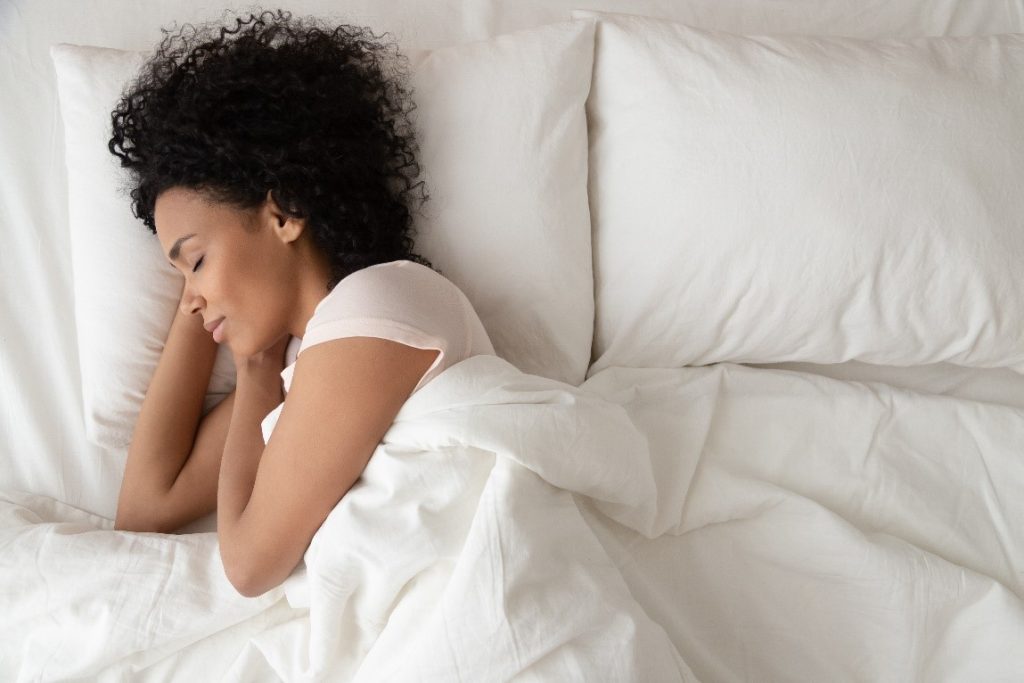- Citrus and peppermint are the worst scents for sleep, with sandalwood proven to aid sleep the best.
- 7 tips to promote a well-rested night’s sleep
With the recent shift to British Summer Time as the clocks went forward over the weekend, research reveals 1 in 5 Brits were already not getting enough sleep raising concerns, as losing an hour of sleep may impact physical and mental health.
To help the nation get a better night’s sleep and adjust to a new routine, fragrance experts at Ava May Aromas have worked with Carlie Gasia, Certified Sleep Science Coach at Sleepopolis, on seven top tips for getting a well-rested night’s sleep despite losing an hour.
1. Avoid certain scents in your room
“Some scents can make you more alert, like citrus and peppermint. These scents stimulate the same nerve that is activated when you use smelling salts. Although it is not as intense, these scents can cause you to wake up,” said Carlie.
2. Avoid naps as they lower sleep drive
Carlie says to: “Resist the urge to take long naps during the day to compensate for lost sleep during the time change. Although it’s best to avoid naps during the day if possible, taking a short mid-day power nap, especially after a bad night’s sleep, can help you repay some of your sleep debt and speed up your recovery.”
Carlie revealed that a 15-20 minute nap around 2PM can give you a major boost in energy and improve your cognitive functioning, all while helping you avoid that groggy feeling afterwards.
“Try to keep a consistent bedtime and wake-up routine to help regulate circadian rhythm. It is also helpful to prioritise relaxation before bed to signal the body that it is time to calm down before sleep.”
3. Use an oil diffuser with calming scents

Image credit: Ava May Aromas
“Adding certain scents to your sleep routine, whether it’s using essential oils topically or through an oil diffuser can be beneficial. It is first important to choose a scent that you find enjoyable and relaxing as this is a personal choice. Integrating the same scent repeatedly can be beneficial because, after a while, your brain will associate a scent with sleep and relaxation.
“Sandalwood is a calming scent that has sedative effects and can promote sleep, as it can help you relax and calm down. Vanilla is also great for winding down for the night. Vanilla has been used to calm the nervous system and to help relieve depression and anxiety,” said Carlie.
4. Keep an eye on your diet
“It’s helpful to align meal times with circadian rhythms, such as eating earlier in the day and having lighter meals at dinner, which can optimize metabolic health and support the body’s natural sleep-wake cycle.
Carlie recommends limiting caffeine and alcohol consumption before bed, as they can harm your sleep quality as well. It is also smart to avoid large meals right before going to bed as it can cause discomfort while trying to sleep.
5. Invest in blackout shades
“Light exposure can manipulate the internal clock. Opening blackout shades as you wake up and taking a morning walk in natural sunlight can kickstart your circadian rhythm by signalling to the brain that it’s time to start the day,” Carlie said.
6. Keep your room clean and decluttered
Carlie highlights that a good bedroom environment is one of the most important aspects of a good night’s sleep.
“A bedroom that is decluttered and smells good limits distractions, making it easier to calm down. Whether it’s the smell of clean sheets or a scent of your choosing, this can help with sleep because you are not being kept up by poor odours.”
7. Make sure your room is cool and dark
“Keeping the temperature between 15 and 20 degrees is beneficial for sleep so you do not get too warm at night. Make sure your room is dark so light coming in does not disrupt your sleep schedule,” said Carlie.

To find the best fragrances for a great night’s sleep, visit https://avamayaromas.com/



